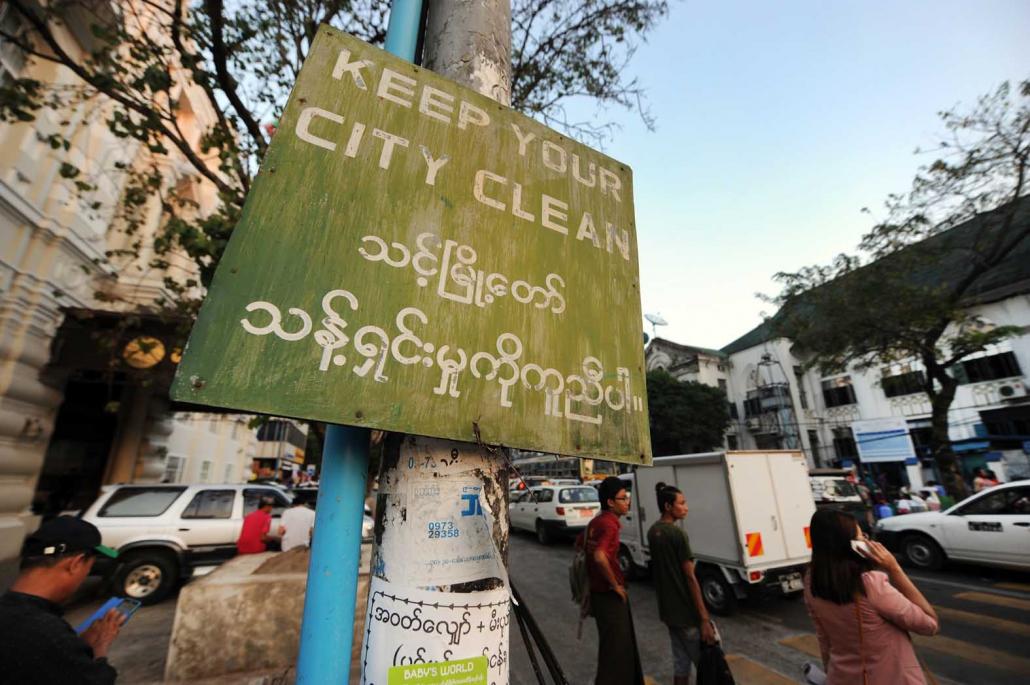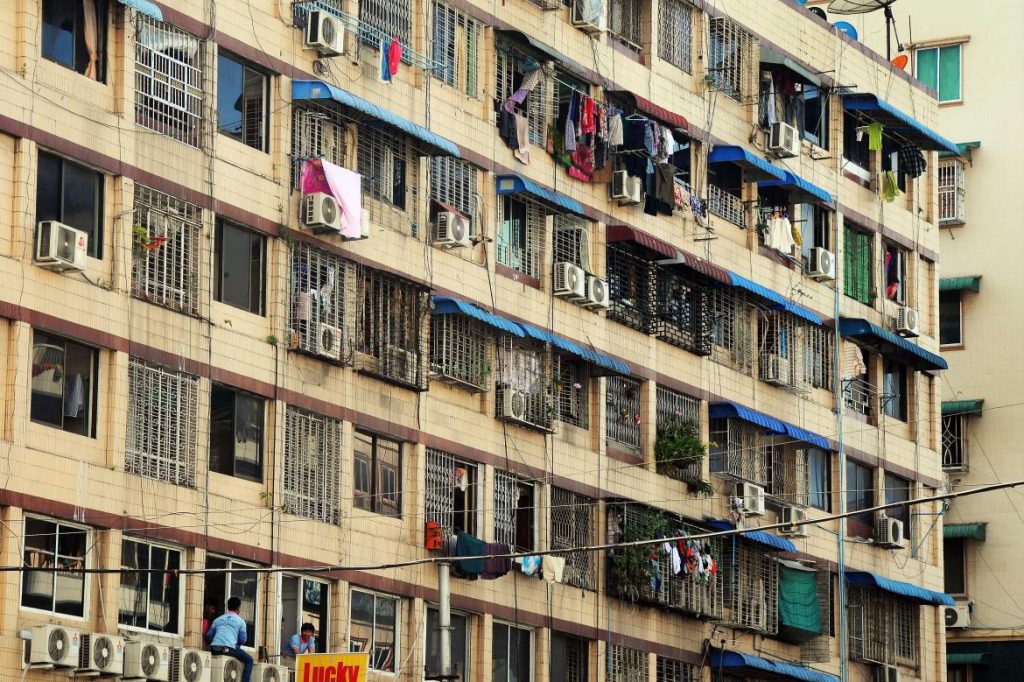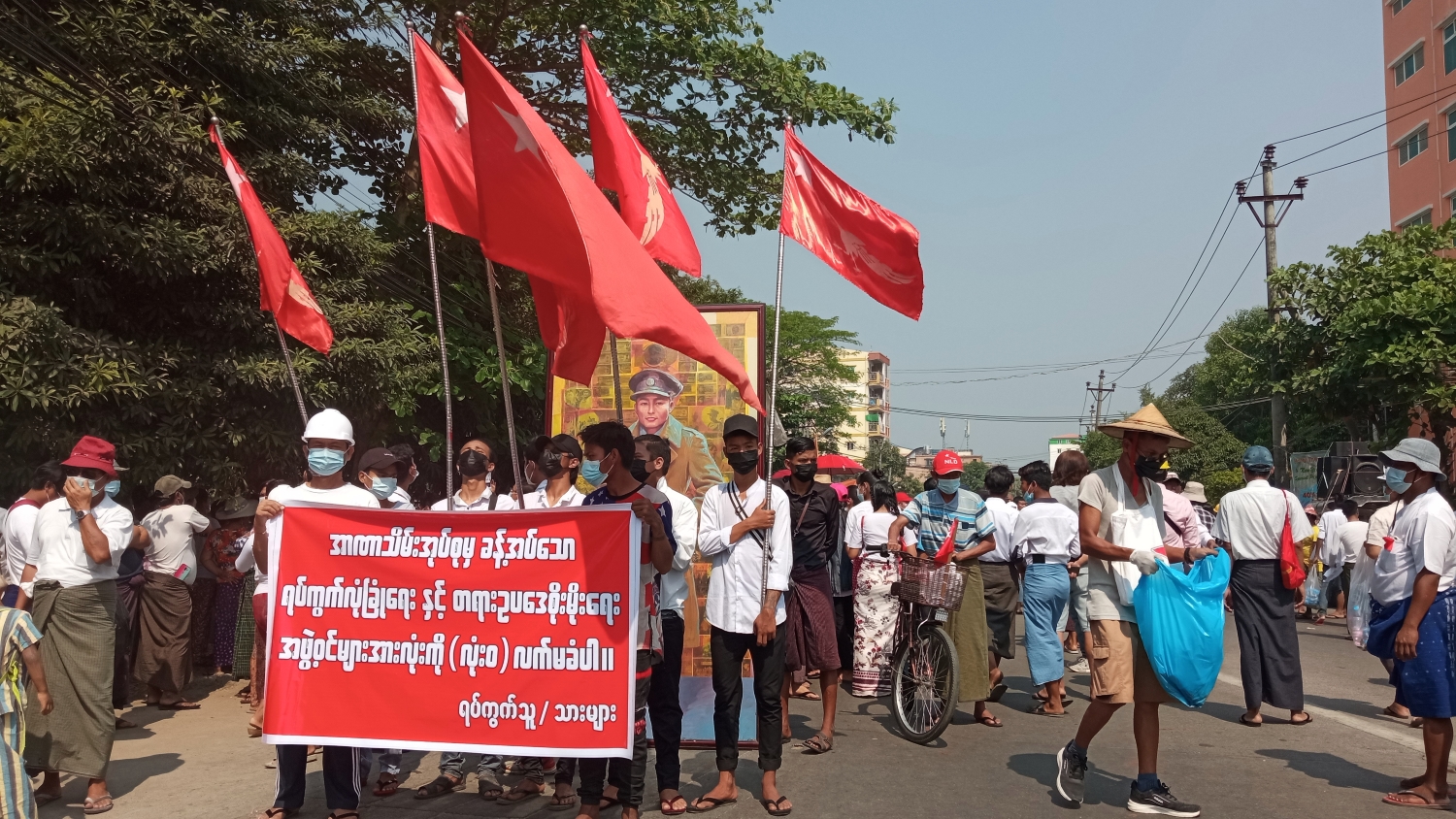Taxes collected by municipalities from owners and occupiers are structurally sound and administratively straightforward, but play a much smaller role in Myanmar than they could.
By LACHLAN MCDONALD | FRONTIER
TAX REVENUE is an essential ingredient for sustainable and inclusive growth in Myanmar. Taxes fund the public services and infrastructure that are essential for improving living standards and creating economic opportunities. Well-managed public spending on roads, hospitals, schools and waste disposal has benefits for all, but tends to disproportionately favour the poor, who rely more heavily on public services.
Taxes can also strengthen the social contract between the government and its citizens. They represent a “bargain”: people pay taxes and, in exchange, the government provides services and maintains order. Paying taxes thus gives citizens a strong interest in holding government to account over the integrity of the tax system and how revenues are spent. Strengthening this bargain is key for Myanmar’s democratic transition.
Myanmar has the lowest tax take in Southeast Asia and one of the lowest in the world. Tax receipts are currently around 6 to 7 percent of GDP. This is much smaller than countries at similar levels of income; the rates in Cambodia and Laos, for example, are closer to 13 or 14 percent.
The social and economic benefits of taxes have not been lost on the Union government. Reforms are underway to improve tax compliance and remove exemptions so that everyone pays their fair share and government budgets can grow.
Support more independent journalism like this. Sign up to be a Frontier member.
In a country where service provision and tax compliance have both historically been weak, tax reform is an inherently difficult prospect. Appropriately, the focus of reforms has so far been on big-ticket items with the largest potential payoff, such as income and commercial taxes paid by the largest taxpayers.
Complementing these efforts, tax reform should also be focused at lower levels of government. While taxes collected in the states and regions are smaller than those paid to the Union government, they still serve an important function.
In particular, research from the Renaissance Institute, a Yangon-based think-tank focused on policy-relevant research, shows that property taxes collected by municipalities are a prime candidate for reform. They are structurally sound and administratively straightforward, but play a much smaller role in Myanmar than they could.Property taxes are regular and compulsory payments made by owners (or occupiers) of property based on an estimate of the property’s value. They are generally thought of as the price that urban residents pay for the benefit of receiving urban services.
Municipal governments around the world rely on property taxes to fund urban services for a number of reasons. Land and buildings tend to be easily identifiable, so evasion is difficult. Only the urban residents that directly benefit from urban services pay the tax and people with more valuable properties pay more tax. They also provide a steady stream of own-source revenue for municipalities that should grow over time as property values appreciate.
Across Myanmar, property tax is paid by urban residents to municipalities every six months. These payments are different to other taxes and charges levied on property, such as stamp duty and capital gains taxes, which are collected by the Union government and/or only paid when a property changes hands.
dsc_2437_lo_res.jpg

Higher property taxes could improve the provision of municipal services, such as rubbish collection. (Steve Tickner | Frontier)
Structurally, the characteristics of the existing property tax system in Myanmar are similar to many former British colonies as well as other countries in the region. The legal framework is clear in assigning almost all property tax revenues to municipalities, which use them to fund urban services. This includes garbage collection, urban roads and other infrastructure.
However, property tax is clearly underperforming. Collections are much smaller than in neighbouring countries and payments by individual owners or occupiers are small – equivalent to the price of a few cups of tea (sometimes less), paid every six months. This has resulted in small municipal budgets and urban services that have not lived up to people’s expectations. It is one of the reasons why cities such as Bago, Hpa-An, Taunggyi and, of course, Yangon are creaking under the strain of their large and growing populations.
The existing property tax system is also not fair. Up to one-third of eligible urban properties are not recorded and therefore not paying their share of property tax. Admistrative systems are slow to respond to changes on the ground being brought about by rapid migration to cities. Current valuation approaches mean that wealthy residents often pay the same amount of tax as poor residents. In Yangon, the property tax system is heavily skewed toward business, with the tourism and manufacturing industries bearing a disproportionate burden while most residents pay almost no tax.
Reform is clearly needed to make Myanmar’s property tax both stronger and fairer. Our work shows that this is possible. No constitutional change is required, and no new tax systems or national laws need to be established. All that is needed is for the existing system to be improved.
The key, of course, is to get the reforms right. They must be based on hard evidence, targeted at the right issues and sequenced appropriately. In our research, we propose the following three reform steps, which are all technically and politically feasible, though they should be planned and implemented over several years.
First, build awareness across levels of government, between municipalities and with the public about municipal governance broadly and property tax in particular. Ultimately, property tax reform is impossible without public support for change.
Second, build stronger administration systems to widen the tax base and improve compliance. Effective record keeping, closing the large outstanding gaps in tax records, and ensuring that records are up to date are essential for applying the tax system fairly and consistently.
Third, adjust tax policy at the state and region government level to improve the equity and effectiveness of the property tax system. This includes changes to the property valuation system and developing standard operating procedures, based on best practice, that municipalities can follow.
Good policy reform will be most fruitful if it is built on a platform of evidence, public engagement and strong administrative systems. The Union government has a role to play in providing strategic policy direction, but in this case it should leave reform and implementation to the states and regions.
Property taxes represent the small but juicy low-hanging fruit of tax reform in Myanmar. They will never be a dominant source of government revenue, like income tax, but they play an important role within cities. As cities continue to grow, a strong property tax system can provide municipalities with the resources they need provide essential urban services. It would also do so in a way that is supportive of sustainable and inclusive economic development.
It is precisely because property tax is presently so small and completely under the authority of autonomous state and region governments that makes it possible to implement bottom-up tax reform. Unlike existing tax reforms, which mainly affect large taxpayers, property taxes have a broad reach across all citizens in all urban areas of Myanmar. Property tax reform could therefore be an important entry point to strengthening the grand bargain between citizens and their government, improving government accountability and restoring public trust. Ultimately, these are the foundations upon which a more peaceful, prosperous and democratic Myanmar will be built.







